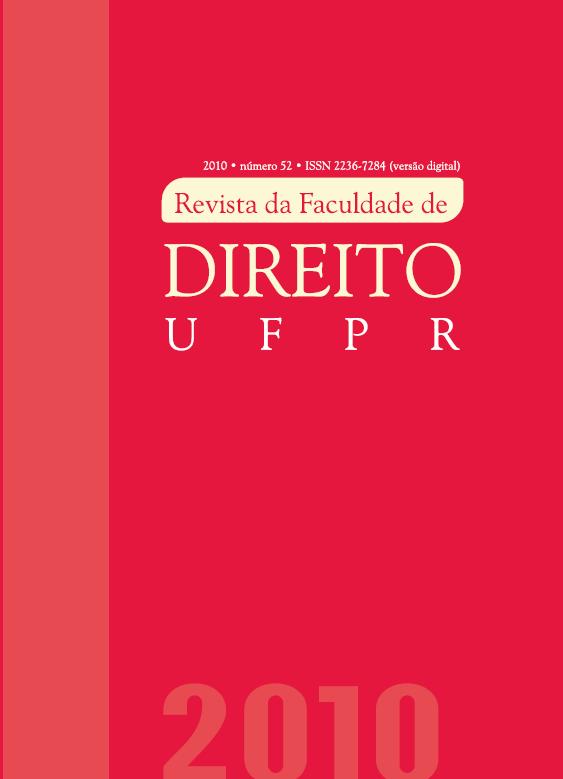DERROTABILIDADE DAS NORMAS JURÍDICAS E A SUA APLICABILIDADE: O DIÁLOGO PRINCIPIOLÓGICO ENTRE O DIREITO CONTRATUAL CIVIL E O DIREITO CONTRATUAL ADMINISTRATIVO
DOI:
https://doi.org/10.5380/rfdufpr.v52i0.30698Keywords:
Derrotabilidade, Normas jurídicas, Diálogo, Princípios, Contratos. Civil, AdministrativoAbstract
Este artigo discorre sobre a teoria da derrotabilidade das normas jurídicas e o modo como ela pode ser utilizada pelo intérprete para que haja a incidência dos princípios contratuais civis também quando se analisa um contrato administrativo. Isso faz com que o intérprete valide o diálogo entre as formas de expressão do direito, bem como, em uma perspectiva crítica, repense a legitimidade e a validade de certos mitos principiológicos do direito administrativo, como a “supremacia do interesse público” que, para muitos, é o princípio vetor da disciplina jurídica administrativa. Pretende-se uma maior cooperação das partes no cumprimento contratual, independentemente de quem sejam os contratantes, a fim de que não haja mais súditos e reis e sim, cidadãos e Estado.
Downloads
How to Cite
Issue
Section
License
Authors who publish in the Journal agree to the following terms:
– Authors retain copyright and grant the Journal the right of first publication, with the work licensed under the Attribution-NonCommercial-ShareAlike 4.0 International licence, allowing the work to be shared as long as proper credit is given to the authors and the initial publication in the Journal is acknowledged;
– Reusers must provide appropriate credit, include a link to the license, and indicate if changes were made, but not in any way that suggests the licensor endorses the reuser or their use;
– Reusers may not apply additional restrictions, legal terms, or technological measures that legally restrict others from doing anything the license permits;
– Reusers must attribute credit to the creator and allow others to distribute, remix, adapt, and build upon the material in any medium or format, exclusively for noncommercial purposes and under the same terms, in compliance with Brazilian Law No. 9,610 of February 19, 1998, and other applicable regulations.



